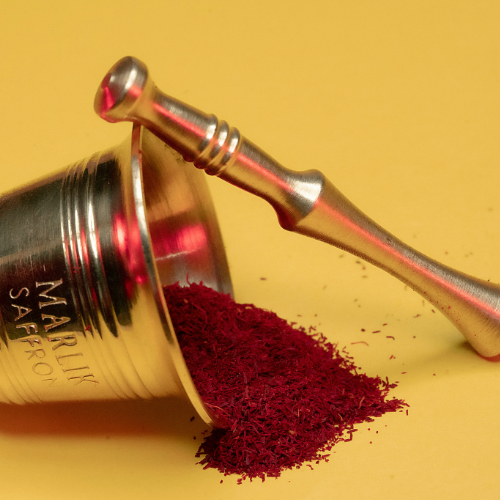
Saffron
Saffron is the most expensive spice in the world. It’s composed of delicate threads poking out of the saffron crocus flower. Each flower produces only a few threads. To make a single pound of spice, you need 50,000 flowers—enough flowers to fill a football field—so one daily pinch of saffron could cost up to a dollar a day.
Raising Our Spirits
Saffron has been found to be effective for treating a major cause of suffering—depression, in this case. Eleven randomized trials have found that, overall, saffron benefits mild to moderate depression significantly better than placebo at doses as little as a single pinch a day (30 mg). And, half a dozen studies have found that the spice beat out placebo or rivaled medications like Prozac in the treatment of depression.
If the spice works as well as the drugs, one could argue that the spice wins, since it doesn’t cause sexual dysfunction in the majority of men and women like most prescribed antidepressants do. Popular SSRI drugs like Prozac, Paxil, and Zoloft cause adverse sexual side effects in about 70 percent of people taking them, which can persist even after stopping the drugs. (Now that’s depressing!) Not only is this not a problem with saffron, the spice may even be able to treat antidepressant-induced sexual dysfunction in both men and women.
Lowering Our Weight
The spice has also been found to diminish our appetite. When put to the test in a randomized, double-blind, placebo-controlled trial, saffron was found to lead to a significant weight loss with a dose the equivalent of drinking a cup of tea made from a large pinch of saffron threads.
A similar study looked specifically at snacking frequency. The researchers thought perhaps the mood-boosting effects of saffron might cut down on stress-related eating. Eight weeks of a saffron extract did cut snack intake in half compared to placebo and was accompanied by a slight but statistically significant weight loss (about two pounds). The researchers used about half the saffron dose as the other study.
Even weight loss of just a few pounds is pretty remarkable, given the tiny doses utilized, about 100 mg, which is equivalent to around an eighth of a teaspoon of the spice.
Saffron and Macular Degeneration
There are interventional studies showing that berries can improve various aspects of our vision, but only one pigmented food has been put to the test for macular degeneration: saffron. A tiny daily pinch of saffron (20 mg) can cause a significant, yet modest, improvement in visual acuity in older adults with mild or moderate age-related macular degeneration.
Reducing Premenstrual Symptoms
Saffron also appears to improve symptoms of premenstrual syndrome, including:
-
mood: anxiety, irritability, depression, nervous tension, and mood swings
-
cravings
-
behavior: poor coordination, insomnia, confusion, headache, crying, and fatigue
-
swelling
-
pain: aches, cramps, and tender breasts
Saffron and Alzheimer’s
The best data we have on spice-based interventions for Alzheimer’s are for saffron, with three double-blind trials showing promise. (Saffron does not appear to improve cognition in individuals without dementia, however.) The cognition studies used as little as 0.125 g a day, which is only about four small pinches of 15 threads each.
How Much Saffron Is Enough? Too Much?
Daily doses are considered safe up to 1.5 g a day (50 pinches). (Saffron is typically sold in containers holding 1 or 2 g.) Taking 5 or more grams a day can cause serious reactions, and overdoses involving 12 to 20 grams a day may be fatal.
For substantiation of any statements of fact from the peer-reviewed medical literature, please see the associated videos below.
Image Credit: Unsplash
Popular Videos for Saffron

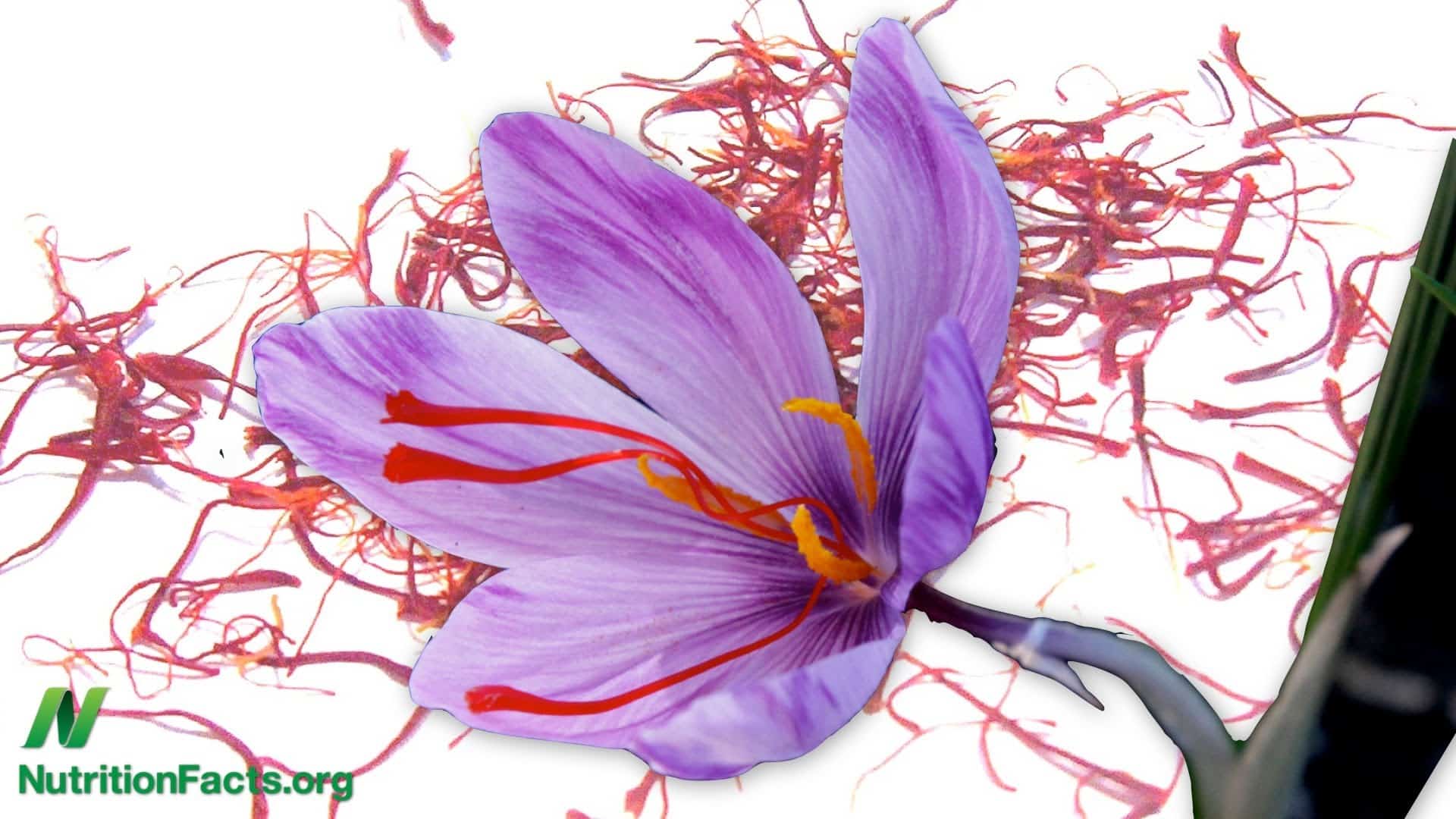
Saffron for the Treatment of Alzheimer’s
In a double-blind study, the spice saffron beat out placebo in the treatment of Alzheimer's...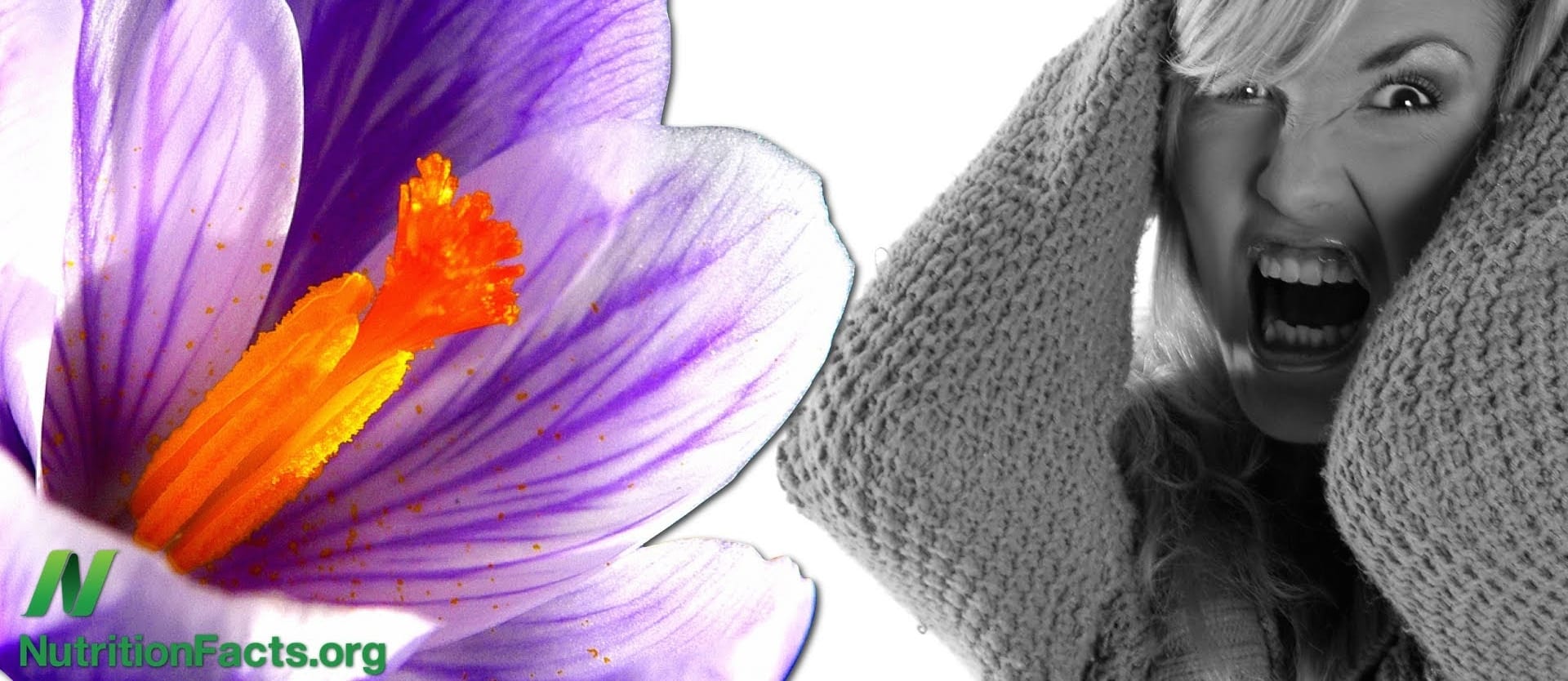
Saffron for the Treatment of PMS
The spice saffron appears to improve both the emotional and physical symptoms of premenstrual syndrome.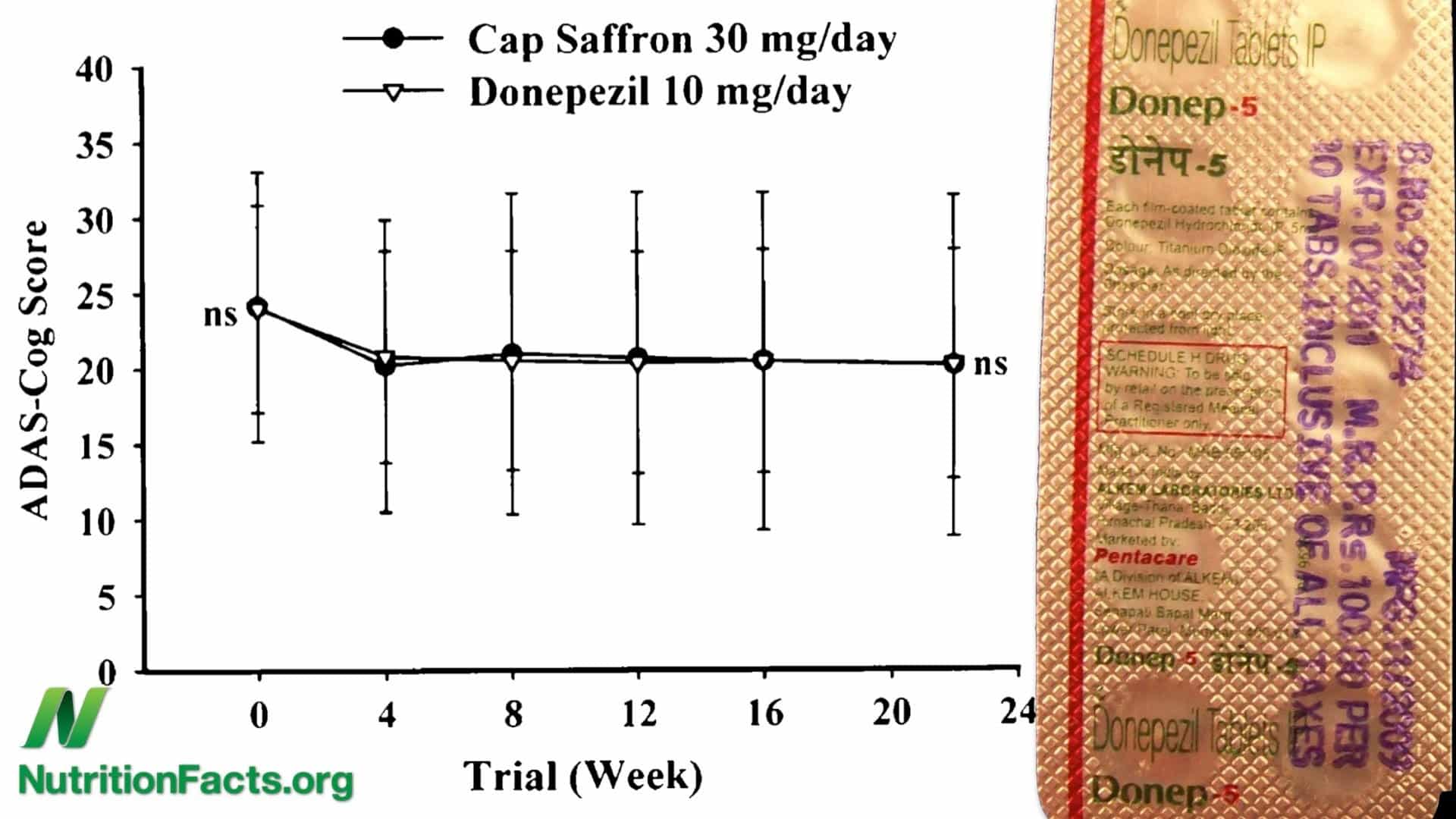
Saffron vs. Aricept
The spice saffron was compared to donepezil (Aricept), a leading drug treatment for slowing the...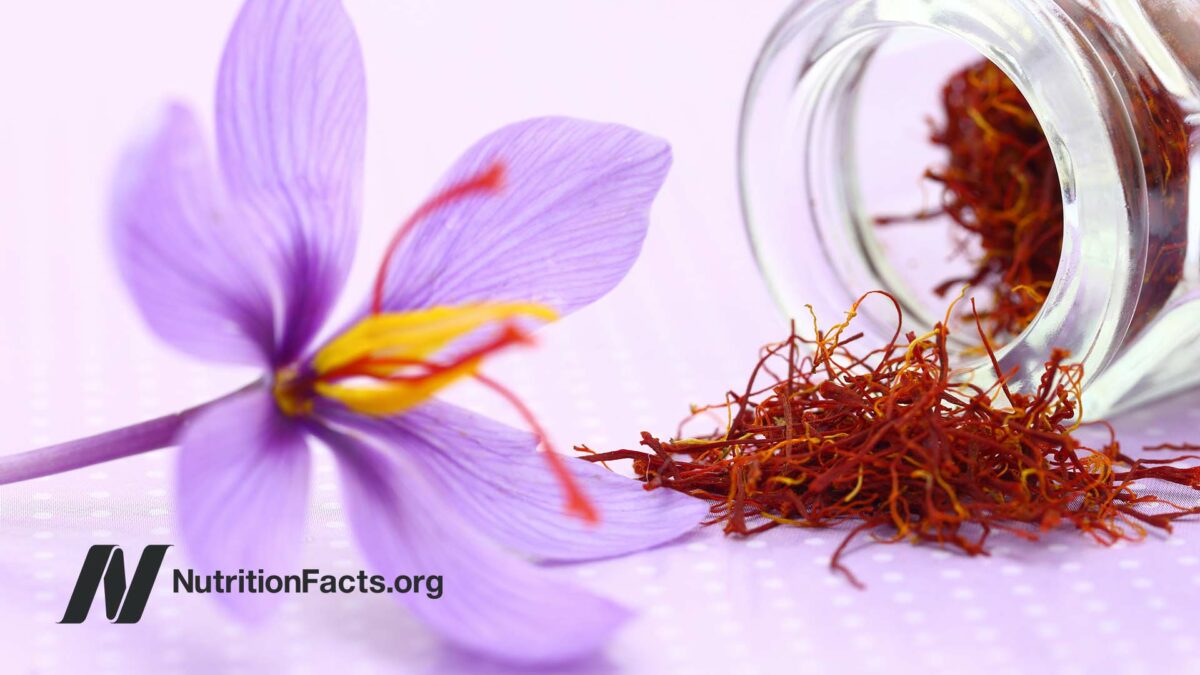
Saffron vs. Memantine (Namenda) for Alzheimer’s
The spice saffron is pitted head-to-head against the leading drug for severe Alzheimer’s disease.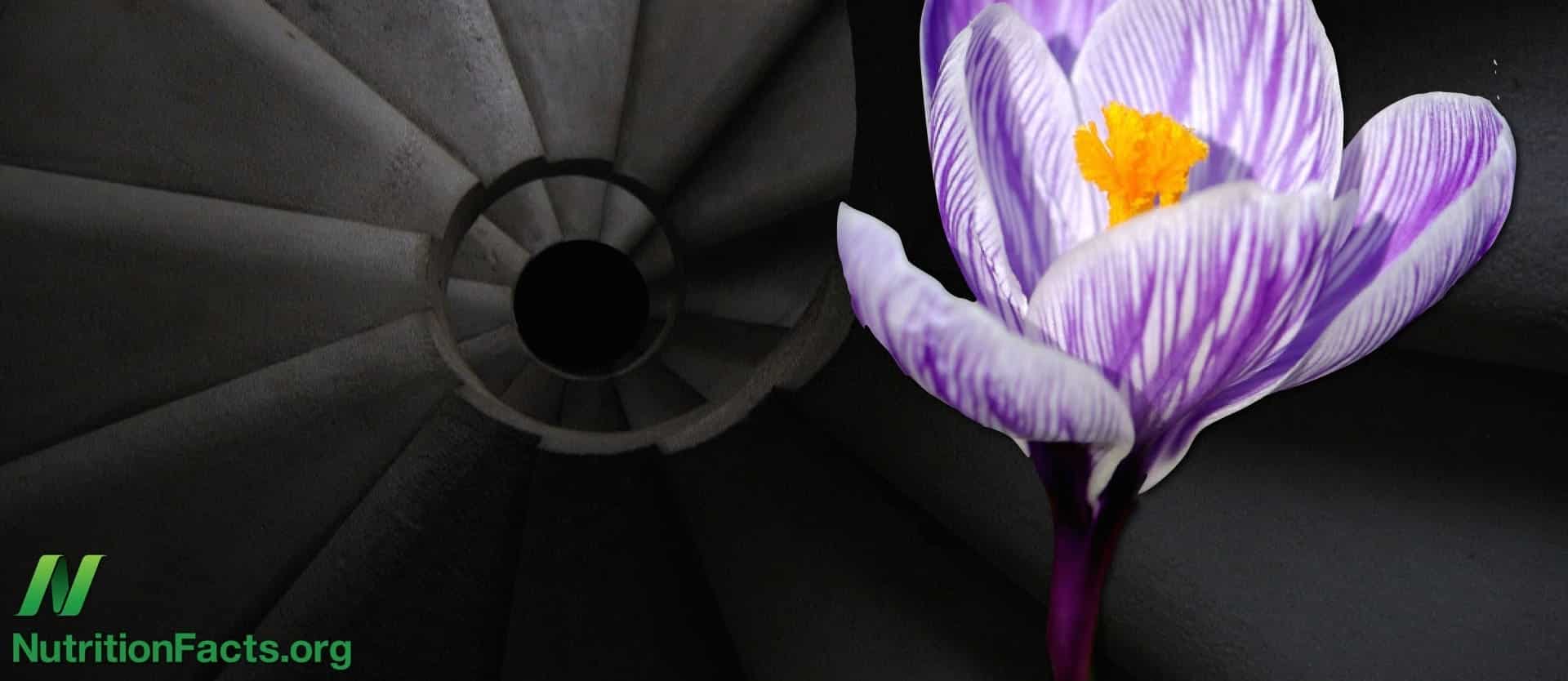
Saffron vs. Prozac
A head-to-head test of the spice saffron versus Prozac for the treatment of clinical depression.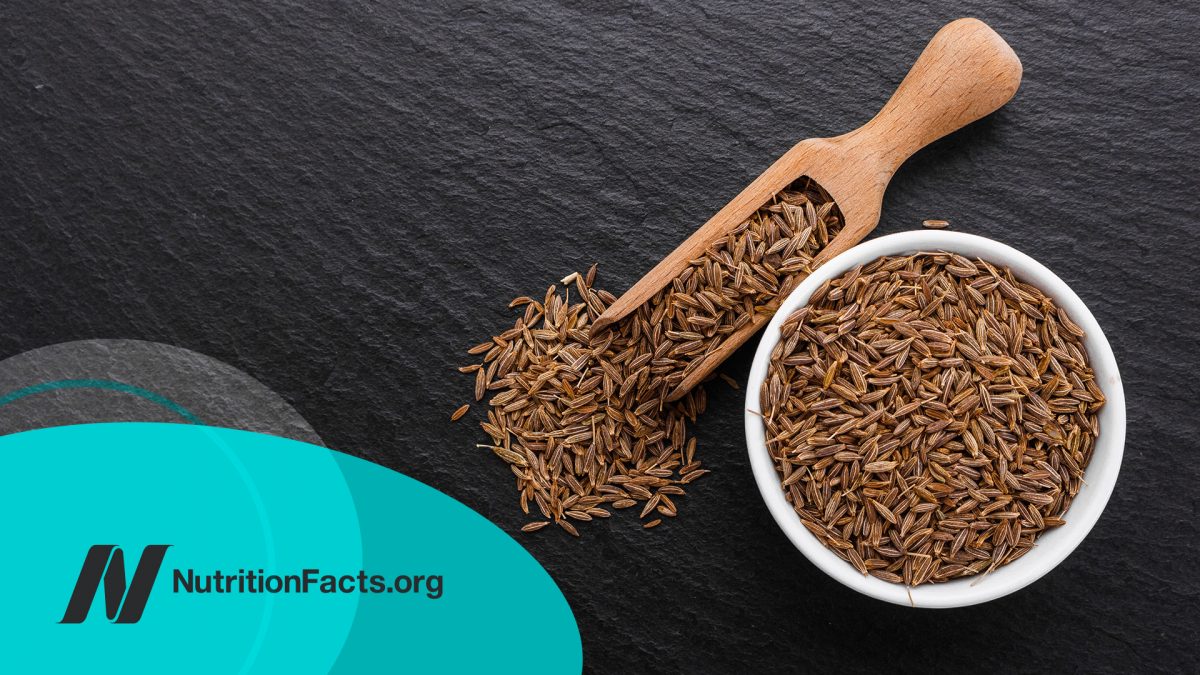
Benefits of Cumin and Saffron for Weight Loss
The spice cumin can work as well as orlistat, the “anal leakage” obesity drug.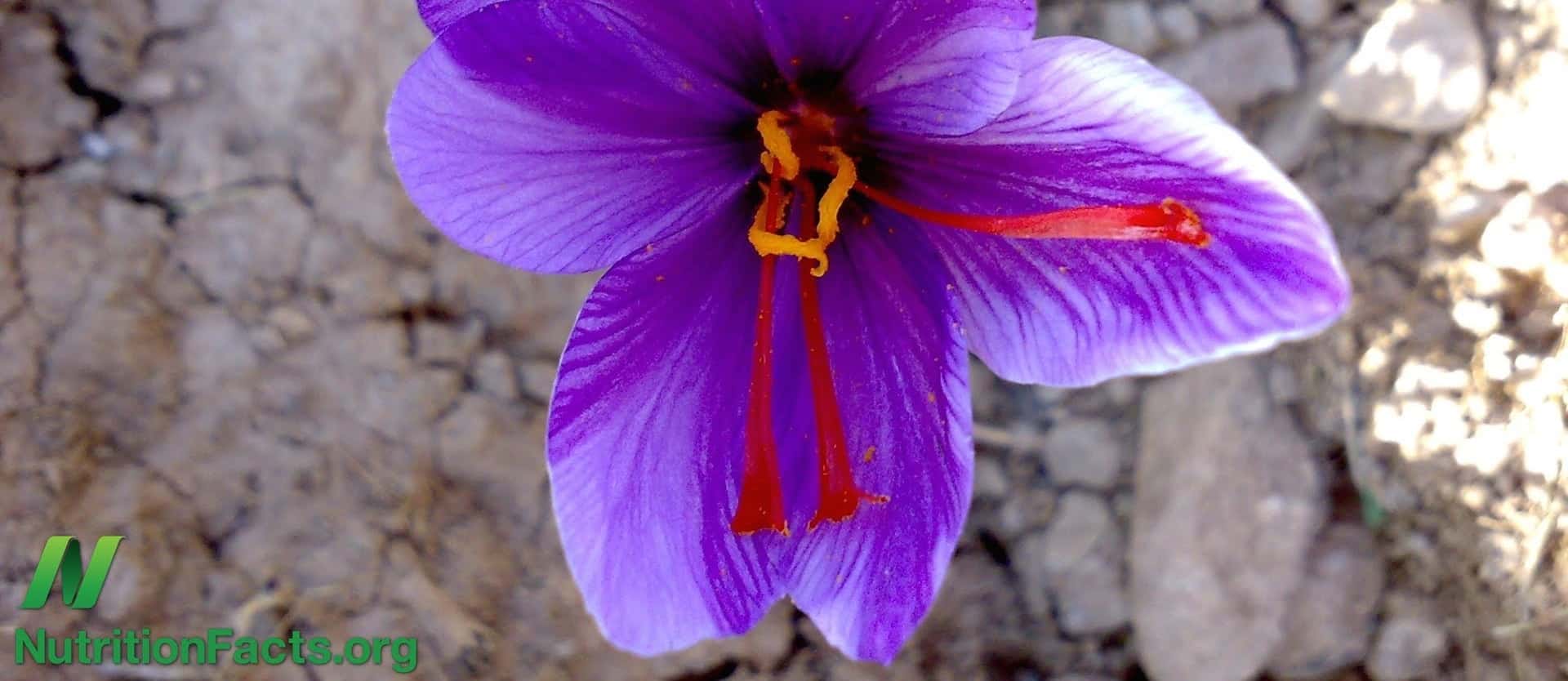
Wake Up and Smell the Saffron
Even the scent of the spice saffron may reduce stress hormone levels, and ease the...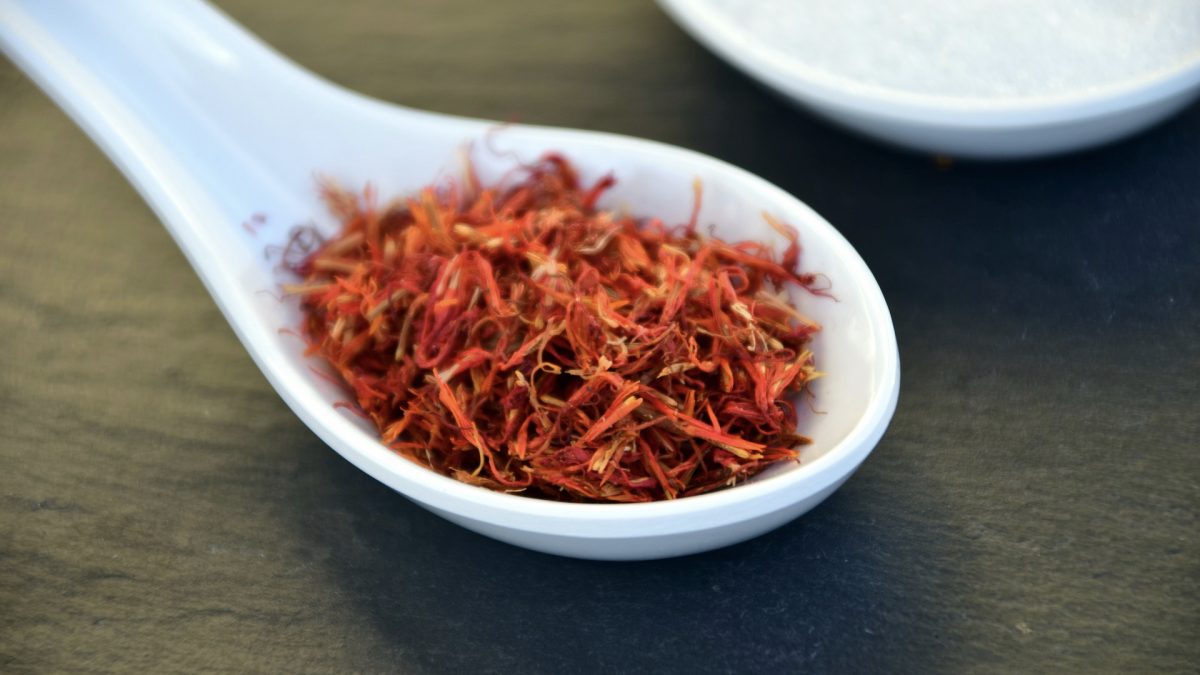
Best Food for Antidepressant-Induced Sexual Dysfunction
The spice saffron may not only work as well as SSRI antidepressant drugs like Prozac,...All Videos for Saffron
-

The Benefits of Saffron for Treating Age-Related Macular Degeneration
Eight threads of saffron a day can improve visual acuity in older adults with mild or moderate age-related macular degeneration.
-

Benefits of Cumin and Saffron for Weight Loss
The spice cumin can work as well as orlistat, the “anal leakage” obesity drug.
-

Saffron vs. Memantine (Namenda) for Alzheimer’s
The spice saffron is pitted head-to-head against the leading drug for severe Alzheimer’s disease.
-

Saffron for Erectile Dysfunction
What are the effects of both oral and topical application of the spice saffron for impotence in men?
-

Best Food for Antidepressant-Induced Sexual Dysfunction
The spice saffron may not only work as well as SSRI antidepressant drugs like Prozac, Paxil, and Zoloft without the side effects, but it may even be able to treat the adverse sexual side effects that occur in up to 70 percent of people taking the drugs.
-

Preventing Alzheimer’s Disease with Plants
If foods like berries and dark green leafy vegetables have been found protective against cognitive decline, why aren’t they recognized as such in many guidelines?
-

Saffron vs. Prozac
A head-to-head test of the spice saffron versus Prozac for the treatment of clinical depression.
-

Wake Up and Smell the Saffron
Even the scent of the spice saffron may reduce stress hormone levels, and ease the psychological symptoms of PMS.
-

Saffron for the Treatment of PMS
The spice saffron appears to improve both the emotional and physical symptoms of premenstrual syndrome.
-

Saffron vs. Aricept
The spice saffron was compared to donepezil (Aricept), a leading drug treatment for slowing the progression of Alzheimer’s disease cognitive impairment.
-

Saffron for the Treatment of Alzheimer’s
In a double-blind study, the spice saffron beat out placebo in the treatment of Alzheimer’s disease dementia symptoms.
